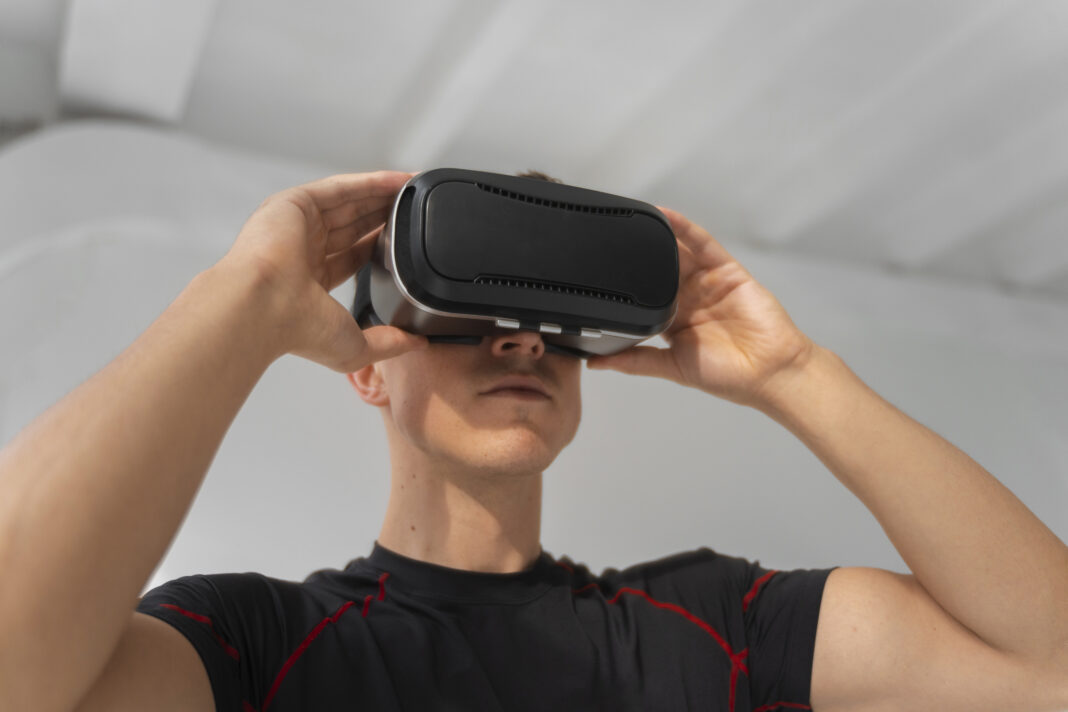In the expansive domain of yachting, where the well-being of both crew and passengers is paramount, the integration of cutting-edge technologies such as Virtual Reality (VR) and Artificial Intelligence (AI) can offer revolutionary benefits.
Inspired by Dr. Elise Jabès’ innovative VR/AI helmet, initially developed to provide psychological support for astronauts on missions to Mars, this article explores the adaptation of such technologies for the unique environment of yachting. My firsthand experience with this technology began at the Smart Yacht Rendezvous last March at the Monaco Yacht Club, where I met Dr. Jabe and had the opportunity to try the VR session she offered. I was immediately struck by its potential.
The introduction of Dr. Elise Jabe’s VR helmet to the maritime world represents a pioneering step forward. Originally designed to aid astronauts in coping with the isolation and stress of long space missions, this system offers therapeutic video sessions and AI-driven support tailored to individual needs. In yachting, where the isolation can similarly impact crew and passengers, these technologies promise significant advancements in mental health and training.
The mental health of the yacht crew, who often spend extended periods at sea away from family and traditional support networks, is crucial for maintaining operational efficiency and a positive working environment. By integrating the VR helmet, crew members can access psychological support and therapy sessions in a format that minimizes distractions and maximizes engagement. The AI component can adapt to the specific stressors faced by crew members, providing personalized coping mechanisms and mental health support.
For passengers, the appeal of yachting often lies in the escape it provides from the stresses of daily life. The VR helmet can enhance this aspect by offering therapeutic sessions that help passengers relax more deeply and enjoy their journey to the fullest. Whether addressing phobias such as the fear of water or simply promoting deep relaxation, the immersive nature of VR ensures that therapy sessions are conducted without external distractions, leading to more effective outcomes.
Beyond mental health, the VR helmet has significant potential for crew training. VR environments can simulate various scenarios that crew members might face, from emergency response drills to complex navigational challenges, providing a safe space for learning and repetition. AI can tailor the training modules based on the crew’s performance, ensuring they are constantly challenged and improving their skills.
By adopting Dr. Elise Jabès’ VR helmet, tailored now for the maritime context, the yachting industry can significantly enhance the mental and emotional well-being of everyone on board, while also setting new standards in training and operational preparedness. This innovative approach not only addresses the unique challenges faced by those at sea but also marks a significant step forward in the integration of technology and personal care in the luxury maritime sector.





